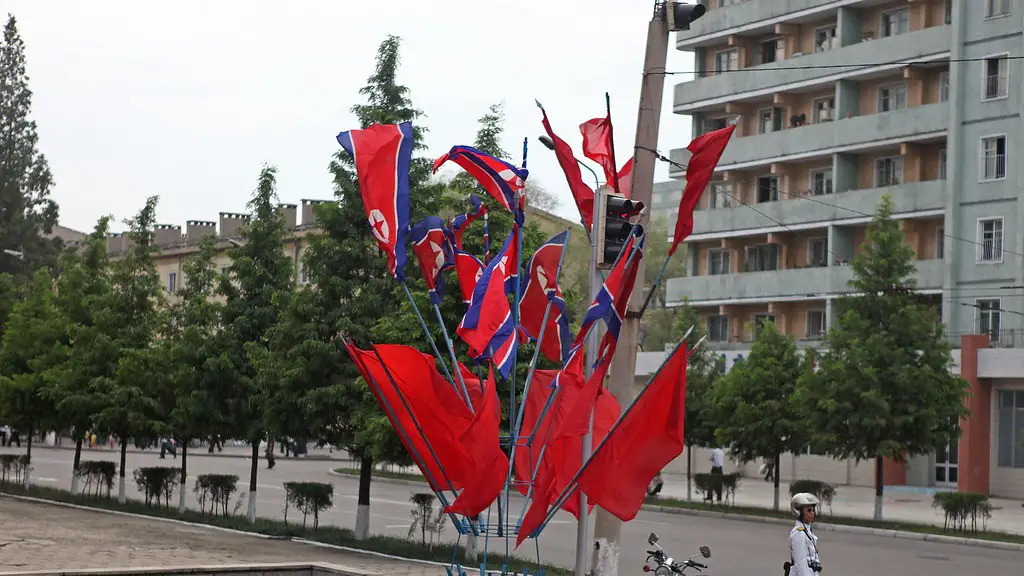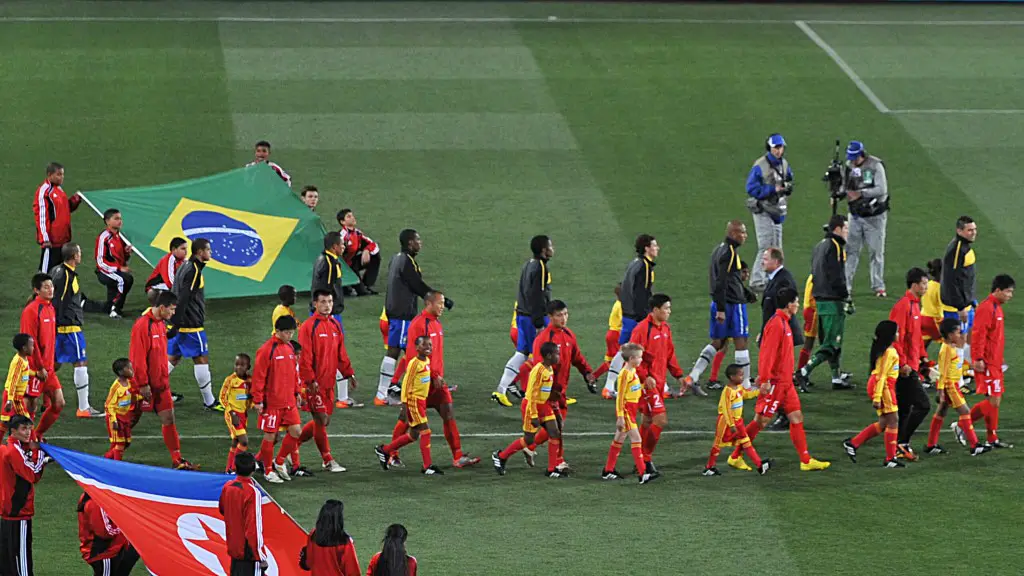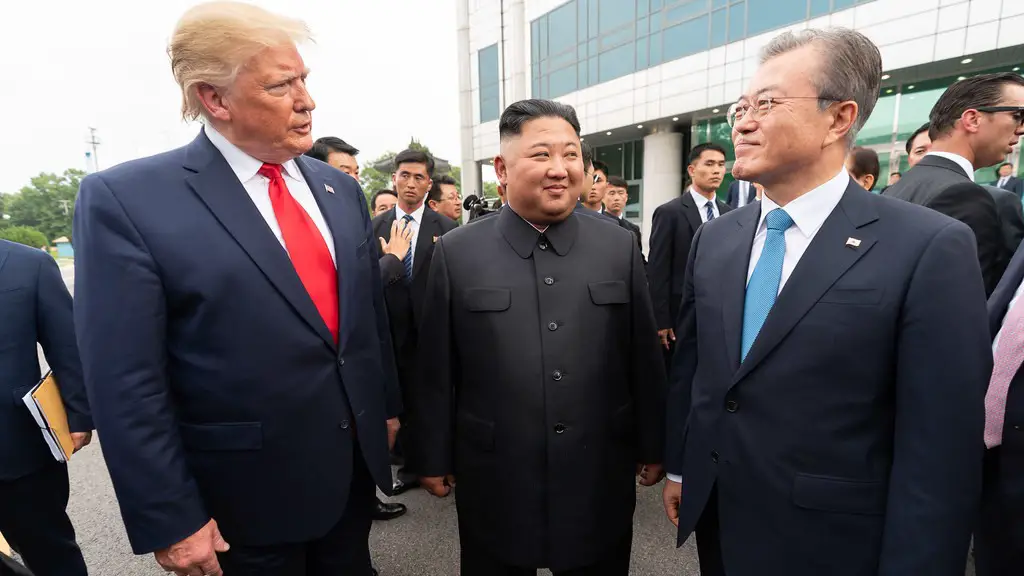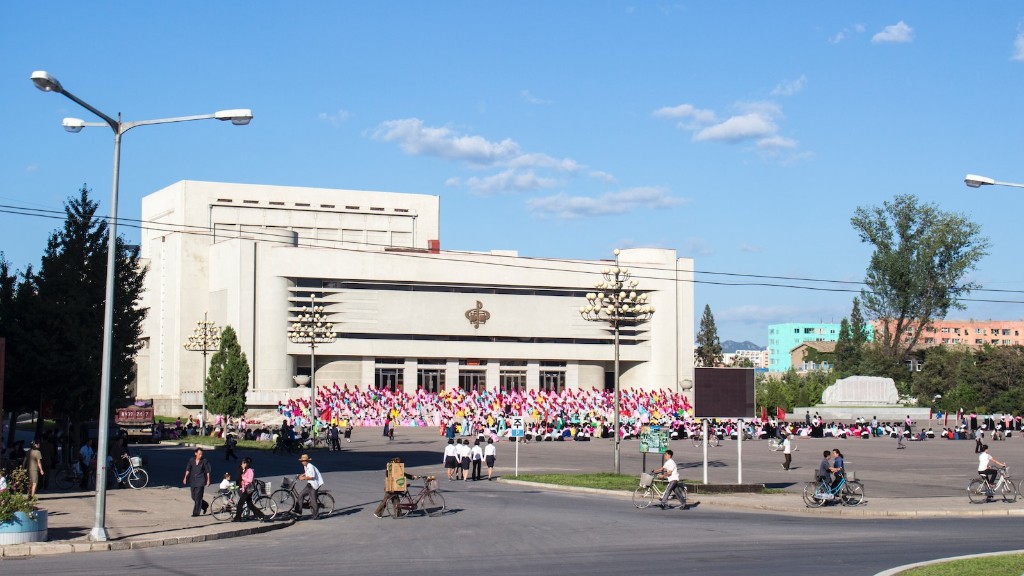North Korea has a policy of nuclear deterrence, and its nuclear weapons development programme dates back to the mid-1980s. The country had its first nuclear test on October 9, 2006, with a second nuclear test on May 25, 2009. North Korea conducted a third nuclear test on February 12, 2013, followed by a fourth nuclear test on January 6, 2016.
Despite the international community’s opposition to its nuclear tests, North Korea has continued to expand its nuclear programme. In September 2017, North Korea conducted its sixth and most powerful nuclear test.
The test was estimated to have a yield of hundred kilotons, which is 20 to 30 times more than the nuclear test it had conducted in September 2016. North Korea said the test was carried out to assess the country’s ability to develop intercontinental ballistic missiles (ICBMs) capable of reaching the United States.
The test has been widely criticised by the international community. United Nations Security Council passed a resolution condemning the test, and stipulating tougher economic sanctions against North Korea. The United States, China and other countries have also called for North Korea to end its nuclear tests and agree to denuclearization.
Experts say the test was a sign of North Korea’s growing military capabilities. According to Robert E. Kelly, a professor of International Relations at Pusan National University, the test was an indication of North Korea’s increasing confidence in its capabilities. He said North Korea is likely to continue with its tests in order to demonstrate increasingly advanced missiles.
North Korea’s nuclear tests have been seen as a threat to the international security, and many have called for stronger sanctions against North Korea. However, some experts believe that sanctions alone are not enough to resolve the issue. According to Alan Romberg, a senior fellow of the East Asia Program at the Stimson Center, it is important to engage North Korea in dialogue in order to address the country’s security concerns. He said that economic incentives, such as providing aid and investment, could be used to convince North Korea to abandon its nuclear weapons programme.
While the international community has yet to find a viable solution to the issue, the situation on the ground in North Korea remains uncertain. The regime has threatened to use nuclear weapons against the United States or its allies, and the United States has responded by stationing advanced anti-missile systems in South Korea. This brinkmanship could easily lead to armed conflict, and the international community should take measures to prevent it from happening.
North Korean Government’s Response
The North Korean government is adamant that its nuclear tests are necessary for the defense of the nation, and have condemned international criticism as “interference in the internal affairs of a sovereign state”. The government also claims to have a “strong determination to pursue the complete denuclearization of the Korean peninsula.” However, the international community remains skeptical of North Korea’s proclaimed commitment to denuclearization, and is likely to demand further nuclear testing and inspections before it can trust Pyongyang’s nuclear capabilities.
The threat of nuclear escalation also remains high. North Korea has claimed that the latest nuclear test is “able to penetrate the earth’s atmosphere and even outer space”, which could potentially be used as an attack against the United States or other countries. In response, United States President Donald Trump has tweeted that “all options are on the table”.
Effectiveness of Sanctions
Sanctions levied on North Korea by the United Nations Security Council are intended to deter Pyongyang from further developing its nuclear capabilities, but there is no clear evidence that the sanctions have been effective. North Korea is, by some estimates, still in possession of up to 60 nuclear weapons, and its recent actions have only served to increase international tension, rather than lower it.
It is possible that North Korea is prioritising its own economic interests over pursuing nuclear capabilities. The economic sanctions imposed on the country by the international community has had a serious impact on its economy, and it is possible that Pyongyang is seeking a resolution that could provide economic relief in exchange for abandoning its nuclear weapons.
At the same time, the sanctions do not come without a cost. Aside from the direct impact on North Koreans’ livelihoods, the sanctions have impeded the humanitarian efforts to provide aid to the population. This is largely due to the restrictions imposed on the import and export of goods, including essential supplies such as food and medicine.
Implications for the Region
North Korea’s nuclear tests have major implications for the region, as many of its neighbours would be at risk of being potential targets. South Korea and Japan, in particular, have expressed concerns over the development of Pyongyang’s weapons programme, and these concerns would be further exacerbated if North Korea were to succeed in developing an ICBM capable of striking the United States.
The tensions between the United States and North Korea has also had a major impact on the geopolitical landscape of East Asia. China, for instance, has sought to provide a balanced approach to the situation, offering talks and diplomatic efforts as a way to resolve the issue, while also pushing for an end to the tests and urging the United States to engage in dialogue.
In addition, recent tests by North Korea have led to an increase in military activities in the region, as countries such as South Korea and the United States have stepped up their presence in the area. This has created a tense situation, and the possibility of armed conflict still remains.
International Diplomacy
The situation in the Korean Peninsula has pushed the international community to seek diplomatic solutions to the crisis. The United Nations Security Council has adopted sanctions on North Korea, while the United States and South Korea have sought to increase pressure on Pyongyang with military exercises and joint naval patrols.
In addition, North Korea has sought closer ties with China, and China has attempted to mediate between the two countries, offering to host talks between the United States and North Korea in an effort to resolve the issue. China has also voiced increasing concerns over the recent tests done by North Korea, and has stated that it will not accept a nuclear-armed North Korea.
The international community has also sought to engage in dialogue with North Korea. In 2018, the two Koreas held a historic summit during which the two sides discussed the denuclearization of the Korean Peninsula, as well as economic and social cooperation between the two countries.
In 2019, North Korea and the United States held talks in an effort to reach a deal on denuclearization, but the talks eventually failed due to disagreements over sanctions relief. The talks have now resumed, and the international community is hopeful that a deal can be reached to end the tensions in the Korean Peninsula.
Conclusion
North Korea’s nuclear tests have been an ongoing source of tension in the international community and in the region. The country has continued to expand its nuclear capabilities despite international criticism and sanctions, and the situation remains precarious.
The international community has sought to resolve the issue through diplomacy, economic sanctions and other measures, but there is still no clear resolution in sight. In the meantime, the security of the region and the world remains precarious, and the only way to ensure the safety of all parties is a peaceful resolution to the crisis.





